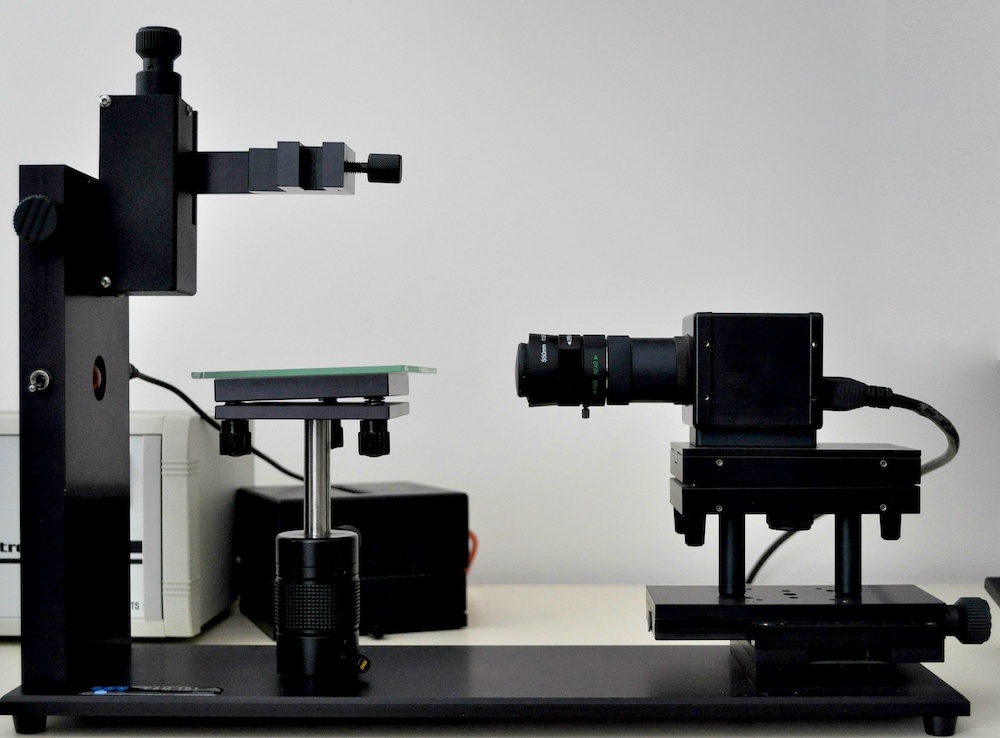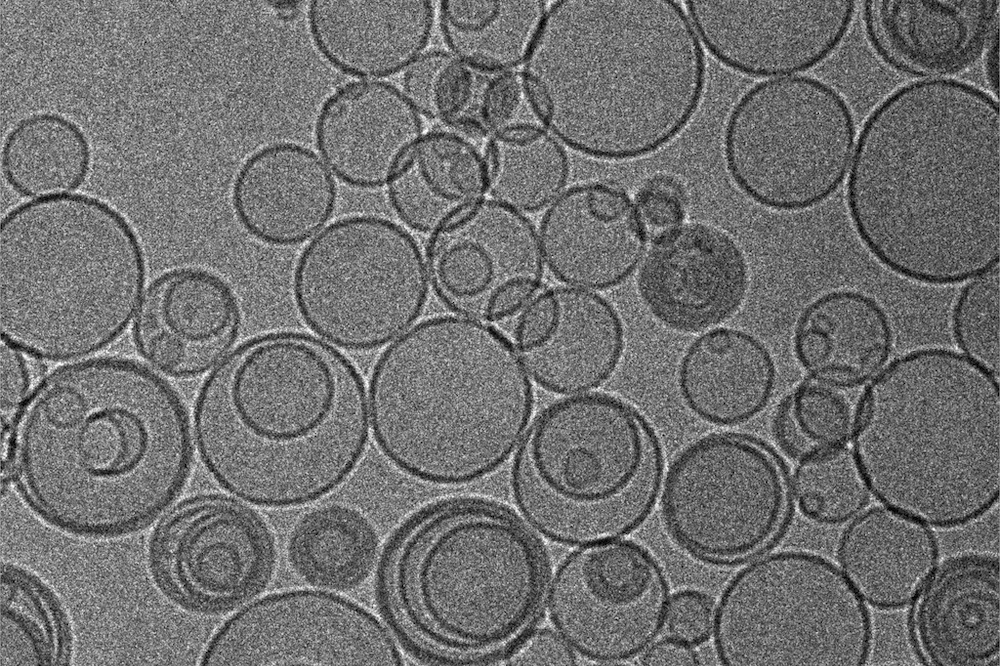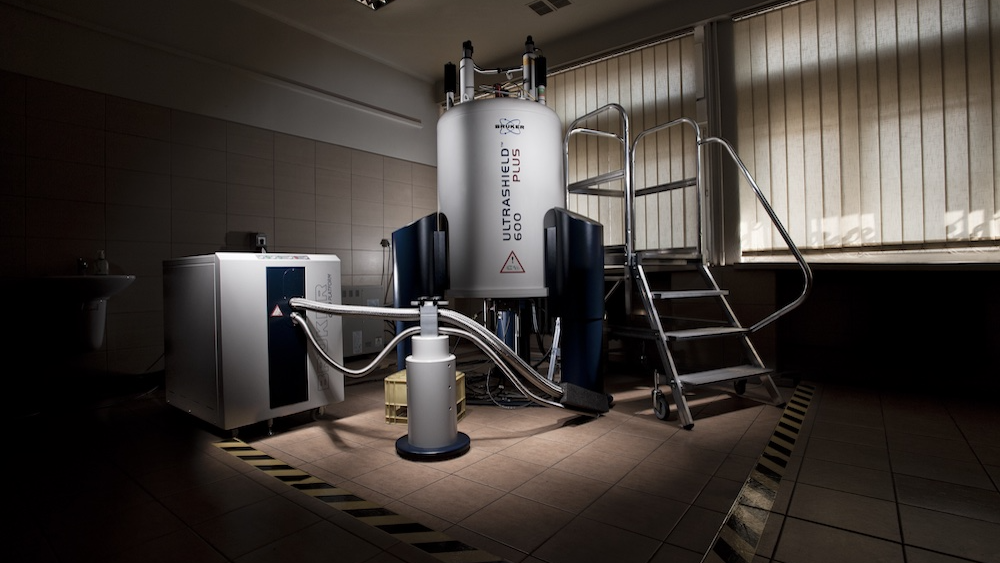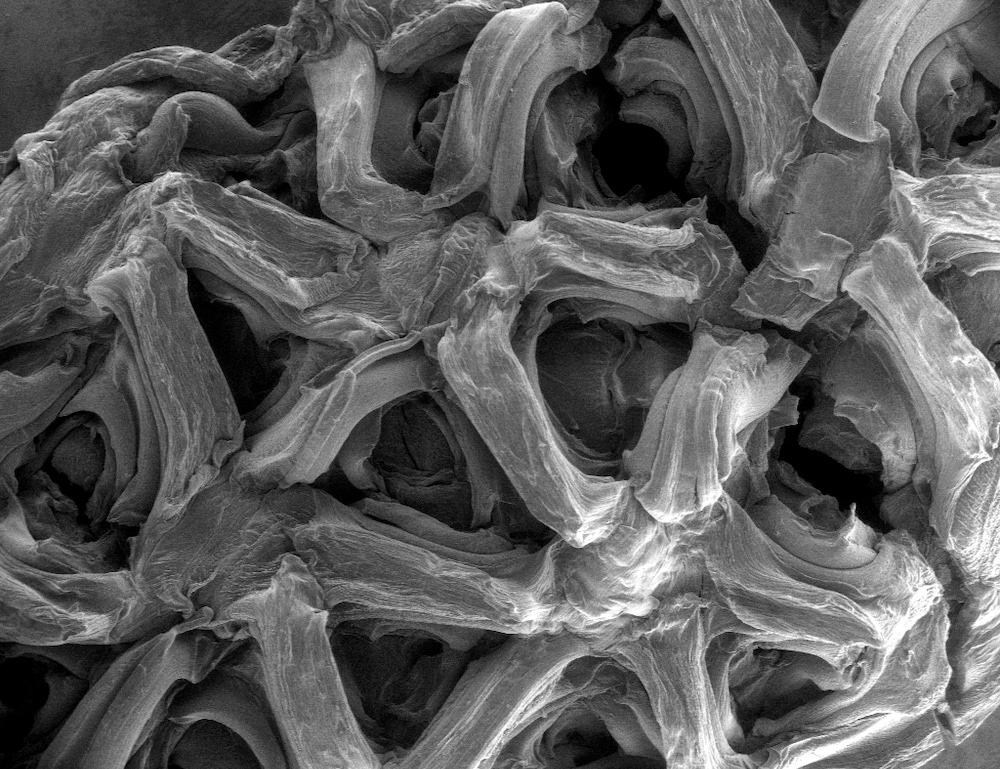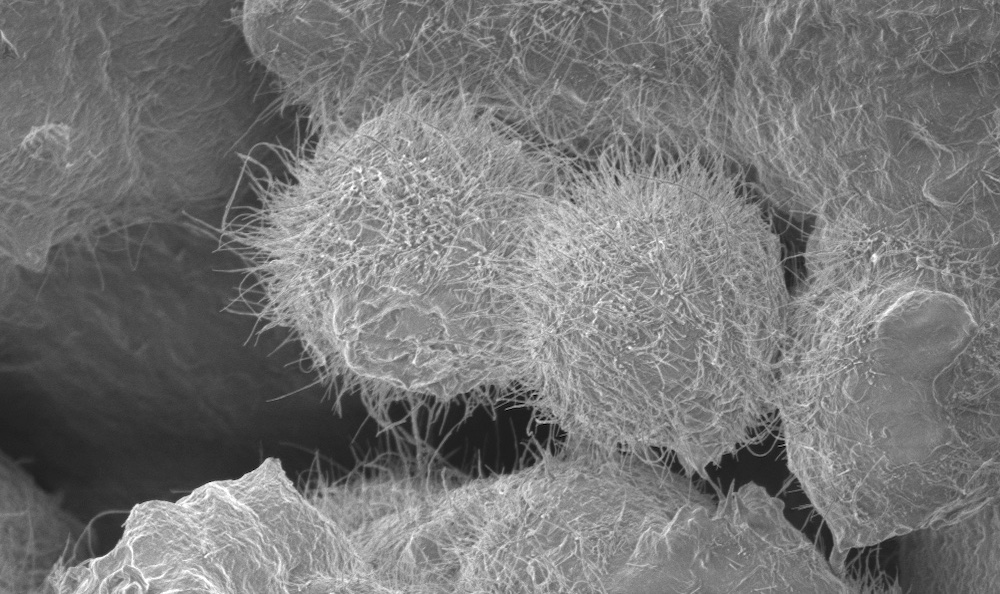Research topics
- LABORATORY OF NANO- AND MICROSTRUCTURED MATERIALS
- LABORATORY OF BIODEGRADABLE MATERIALS
- LABORATORY OF CARBON AND POLYMER-CARBON MATERIALS
- LABORATORY OF POLYMER BIOMEDICAL MATERIALS
- LABORATORY OF FUNCTIONAL MATERIALS ENGINEERING
- INDEPENDENT MICROSCOPY TEAM
Laboratory Manager: dr. hab. eng. Agnieszka Kowalczuk, prof. CMPW PAN
tel. 32 271 60 77 w. 235
e-mail: akowalczuk@cmpw-pan.pl
Research team:
prof. dr. hab. Barbara Trzebicka
dr. hab. Alicja Utrata-Wesołek, prof. CMPW PAN
dr. hab. eng. Wojciech Wałach, prof. CMPW PAN
dr. hab. eng. Barbara Hajduk
dr. hab. Barbara Mendrek
dr. eng. Daria Lipowska-Kur
dr. eng. Łukasz Otulakowski
dr. eng. Paulina Teper
dr. Marcelina Bochenek
dr. Natalia Oleszko-Torbus
dr. Theodoros Sentoukas
dr. Pallavi Kumari
MSc eng. Katarzyna Filipek
MSc Anna Celny
tech. Elżbieta Twardowska
Research topics:
The Laboratory of Nano- and Microstructured Materials conducts research in the field of:
- application of living and controlled polymerization methods,
controlled synthesis of amphiphilic polymers, - syntheses and studies of the properties of star and branched polymers,
self-assembly of amphiphilic polymers in an aqueous environment, including polymers with a non-linear structure of a macromolecule, - polymers reacting to environmental stimuli (“smart polymers”), primarily in the aspect of biomedical applications,
nanolayers of polymers of different composition and topology, covalently bonded to a solid substrate, with potential applications, m.in. in tissue engineering, and as antifouling and antibacterial materials.The teams of the Laboratory have experience in the implementation of national and international research projects, including projects financed under the “Innovative Economy” Programme, projects of the VII Framework Programme of the European Union, the Applied Research Programme of the National Centre for Research and Development, research projects of the National Science Centre and others.
Laboratory Manager: prof. dr. hab. Grażyna Adamus
tel. 32 271 60 77 w. 226
e-mail: gadamus@cmpw-pan.pl
Research team:
prof. dr. hab. eng. Marek Kowalczuk
prof. dr. hab. eng. Piotr Kurcok
dr. eng. Paweł Chaber
dr. eng. Magdalena Martinka Maksymiak
dr. eng. Marta Musioł
dr. eng. Wanda Sikorska
dr. Wioleta Borzęcka
dr. Khadar Duale
dr. Joanna Rydz-Pawlak
MSc eng. Kamil Dawid
MSc Silke Andrӓ-Żmuda
PhD student from the Joint Doctoral School of the Silesian University of Technology:
MSc Abhishek Thakur Thakur
Research topics:
The Laboratory conducts research in the field of:
- synthesis of polyhydroxyacanate analogues, among others by anionic polymerization of β-lactones.
- synthesis of aliphatic biopolyesters for applications in medicine and cosmetology
- applications of multi-stage mass spectrometry in the study of the structure of (co)polyesters and the mechanisms of polyreactions and (bio)degradation of polymers.
- processing and modification of the properties of biodegradable polymer materials, as well as studies of the relationship between the structure and the properties and biodegradation of new polymer materials and composites. The Laboratory cooperates with national and European
- research centers and has experience in the implementation of national and international research projects.
Laboratory Manager: dr. hab. eng. Urszula Szeluga, prof. CMPW PAN
tel. 32 271 60 77 w. 245
e-mail: uszeluga@cmpw-pan.pl
Research team:
dr. hab. Sławomira Pusz
dr. eng. Paweł Wróbel
dr. eng. Klaudia Kurtyka
dr. eng. Marcin Godzierz
dr. eng. Karolina Olszowska
dr. Viktoriia Talaniuk
dr. Ruslana Mazurenko
MSc eng. Anna Gawron
MSc Anastasiia Kobyliukh
MSc Yaroslava Oliinyk
PhD student from the Joint Doctoral School of the Silesian University of Technology:
MSc Yevheniia Buinova
Research topics:
- functionalization and characterization of carbon structures for the development of advanced multifunctional materials, including as active materials in electronic components, active elements of photodetectors or gas sensors, as well as in the role of thermoelectric materials.
- obtaining and characterizing carbon nanomaterials (carbon nanotubes, carbon nanofibers, graphene materials) decorated with nanoparticles of transition metal oxides and spinels, and determining the effect of their chemical composition and architecture on sensory properties and EM radiation absorption capacity.
- developing and characterizing multifunctional polymer matrix composites using carbon materials as nano- and microfillers, and detailed studies of the relationships between the structure of carbon fillers, their distribution in the polymer and mutual interactions and the properties of polymer composites, proposed, among others, as electrically and thermally conductive materials, EMI shielding materials, wearable electronics
- systems, systems for storing mechanical and thermal energy, sensor systems. synthesis and optimization of process parameters for obtaining graphene structures, including 3D, on metal oxide substrates.
- development of methods for producing and characterizing porous carbon materials from polymer precursors, including by-products and waste.
Laboratory Manager: prof. dr. hab. eng. Janusz Kasperczyk
tel. 32 271 60 77 w. 230
e-mail: jkasperczyk@cmpw-pan.pl
Research team:
prof. dr. hab. Piotr Dobrzyński
dr. hab. Katarzyna Jelonek
dr. hab. Joanna Jaworska
dr. hab. Michał Sobota
dr. eng. Bożena Kaczmarczyk
dr. eng. Małgorzata Pastusiak
dr. eng. Jakub Włodarczyk
dr. Monika Musiał-Kulik
dr. Anna Smola-Dmochowska
dr. Natalia Śmigiel-Gac
dr. Mateusz Stojko
tech. Marzena Pławszewska
tech. Agnieszka Urgacz-Kowalczuk
The Laboratory of Polymer Biomedical Materials conducts interdisciplinary work, the implementation of which is the responsibility of the Research Staff selected in a way that allows for a comprehensive approach to the research problem. In addition to conducting research within the scope of the Institute’s statutory activities, the Laboratory is successful in commercial implementations, as evidenced by numerous patents and finalized implementations of technological solutions in the fields of exact and natural sciences and engineering and technology.
The research work carried out in the Laboratory covers a wide range of topics, i.e. from the synthesis of biodegradable polymers through their processing, obtaining materials with a wide range of medical purposes and polymer drug release systems based on the synthesized materials, to studies of the biological properties of the obtained solutions.
Detailed research profile of the laboratory:
- synthesis and characterization of bioresorbable polymers with a designed chain microstructure
- obtaining bioresorbable aliphatic copolyesters
- obtaining biodegradable antibacterial linear polyamidoamines containing secondary amines in the chain
- synthesis of polymers with bactericidal properties and prolonging blood clotting by chemical modification of chitosan and carrageenans
- studying the mechanism of initiation and growth of homo and copolymer chains using non-toxic initiators
- development, preparation and characterization of bioresorbable, polymeric controlled drug release systems
- design of optimal drug carriers as implant systems (e.g. implants obtained by electrospinning, microinjection or classical solution casting) or injectable systems (e.g. nanoparticles such as nanospheres, micelles, polymersomes or microparticles such as microspheres)
- selection of polymers for obtaining controlled drug release systems in terms of physicochemical properties and degradation time in order to optimize drug release kinetics
selection of a method for obtaining drug carriers - characterization of drug carriers in terms of morphology, physicochemical properties and degradation under in vitro conditions
analysis of drug release kinetics – selection of a method for testing drug release, encapsulation efficiency, quantitative analysis using spectrophotometric and HPLC methods
- development, preparation and characterization of polymeric materials for medical applications
- materials and solutions for minimally invasive surgery used in cardiology (vascular stents, TAVI valves)
- production of filament intended for 3D printing (medical grade)
- pproduction of 3 types of filaments obtained from poly(L-lactide-glycolide) (PLGA) with different comonomer composition: PLGA 85:15, PLGA 70:30 and PLGA 50:50 (more information at: https://4medprint.cmpw-pan.pl/ )
- characterization of biological properties of polymeric materials intended for medical and pharmaceutical applications
- in vitro cytotoxicity assessment according to ISO 10993-5
- assessment of interaction with blood in terms of haemolytic and thrombogenic properties according to ISO 10993-4
- assessment of biological activity of medicinal substances in the form of polymer controlled release systems
Laboratory Manager: prof. dr. hab. eng. Ewa Schab-Balcerzak
tel. 32 271 60 77 w. 112
e-mail: ebalcerzak@cmpw-pan.pl
Research team:
prof. dr. hab. eng. Mieczysław Łapkowski
dr. hab. eng. Bożena Jarząbek, prof. CMPW PAN
dr. hab. Henryk Bednarski, prof. CMPW PAN
dr. hab. Jolanta Konieczkowska
dr. eng. Paweł Gnida
dr. eng. Henryk Janeczek
dr. eng. Klaudia Nocoń-Szmajda
dr. eng. Mariola Siwy
dr. eng. Radosław Motyka
dr. eng. Agnieszka Pająk
MSc Andrzej Jankowski
PhD students from the Joint Doctoral School of the Silesian University of Technology:
MSc Richa Richa
MSc Muhammad Faisal Amin
MSc Muhammad Raheel Khan
MSc Ayman Abdallah
Research topics:
The research topics are focused on determining the influence of the chemical structure of new materials, both small-molecule compounds and polymers, on their properties that determine the possibilities of application in organic optoelectronics, photonics, or as modern membrane materials.
The scope of research includes the synthesis of functional materials and their advanced characterization.
The modification of the chemical structure of the obtained compounds in order to obtain the appropriate properties (optical, electrical, mechanical and separation) is carried out based on the principles of molecular and supramolecular engineering. These methods include both modifications made at the stage of synthesis, as well as chemical post-modifications using appropriate functional groups, or physical modifications consisting in obtaining thin layers, blends or composites containing molecularly dispersed appropriate compounds, taking into account the method of their production.
An important part of the research is the attempt to use selected compounds as components of active layers in organic optoelectronic devices such as: photovoltaic cells, field effect transistors, light-emitting diodes, as layers organizing liquid crystals, as materials exhibiting a photomechanical effect and as materials used to produce gas separation membranes, including membranes in which the separation (transport) properties can be controlled by light.
Laboratory Manager: dr. hab. Sławomira Pusz
tel. 32 271 60 77 w. 250
e-mail: spusz@cmpw-pan.pl
Research team:
dr. eng. Aleksander Foryś
dr. eng. Marcin Godzierz
dr. eng. Karolina Olszowska
MSc eng. Andrzej Marcinkowski
The Independent Microscopy Team conducts research on polymer and carbon materials using the following methods:
- Transmission Electron Microscopy (TEM)
– Preparation of samples for TEM and cryo-TEM examinations
– Examination of samples in cryogenic mode (cryo-TEM)
– Examination of samples at room temperature
– 3D imaging in TEM and cryo-TEM
– Development of TEM and cryo-TEM examination results
- Scanning Electron Microscopy (SEM)
– Preparation of samples for SEM testing
– Standard analysis of surface morphology or structure of samples in high and low vacuum mode
– Analysis of samples in environmental ESEM mode
– Analysis of aqueous suspensions using wet-STEM technique
– Analysis of elemental composition of micro-areas using EDS technique
– Development of SEM and EDS test results
- atomic force microscopy (AFM)
– preparation of samples for AFM tests
– standard surface morphology tests (contact, non-contact and mixed mode – TappingModeTM)
– morphology tests of samples in a liquid environment
– morphology tests of samples at elevated temperatures (up to 60 ᵒC)
– measurements of nanomechanical properties of samples (QNM)
– measurements of magnetic properties (MFM)
– measurements of electrical conductivity of samples (PF-TUNA)
– development of AFM test results
